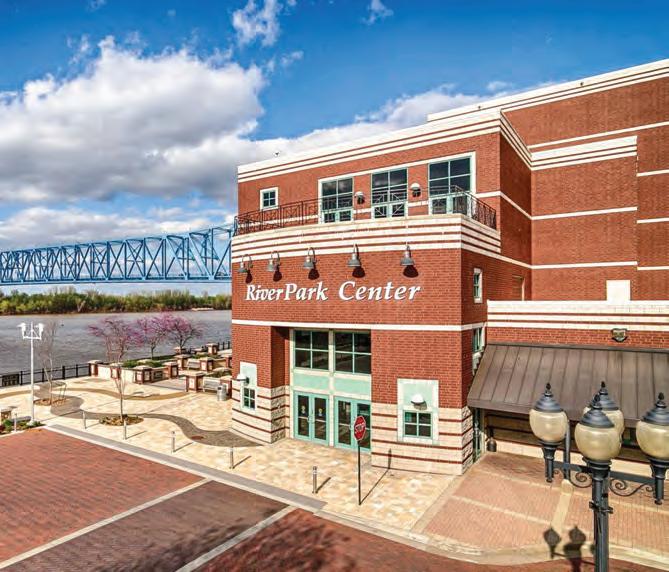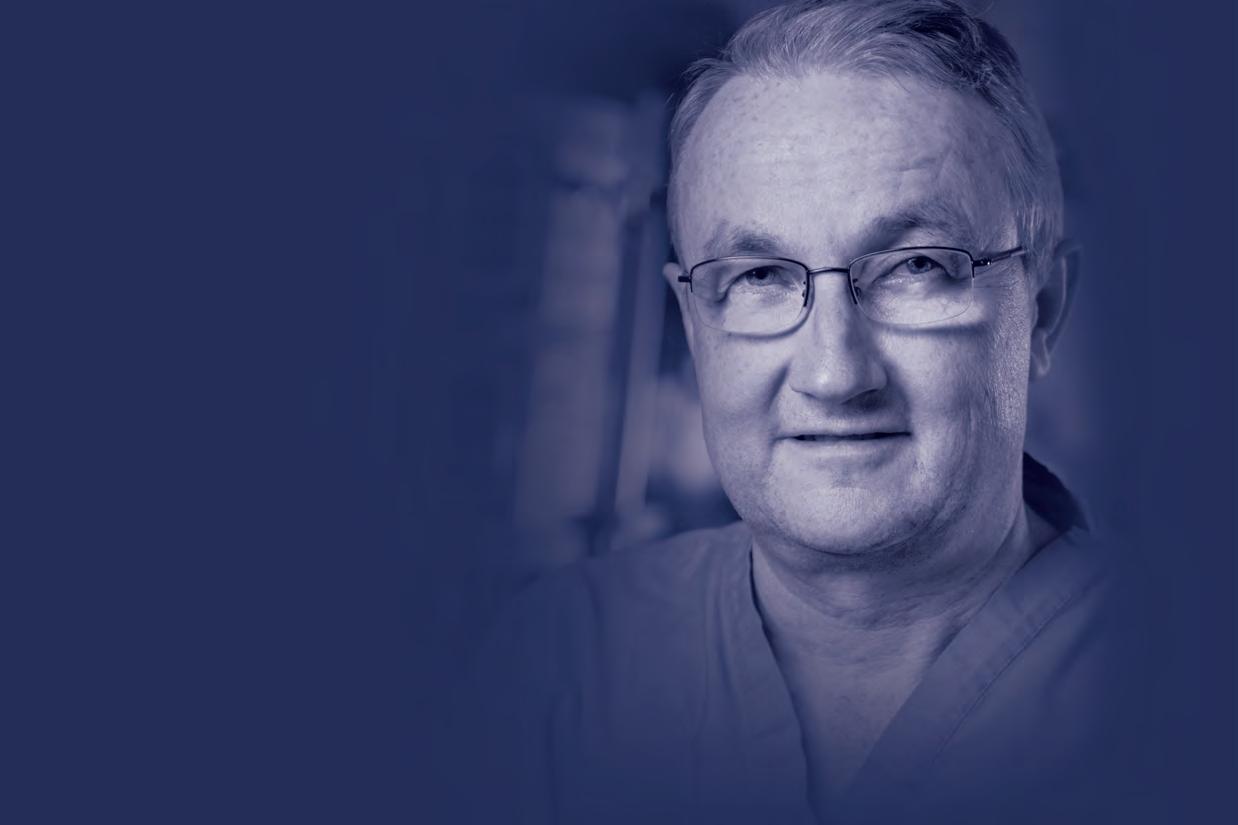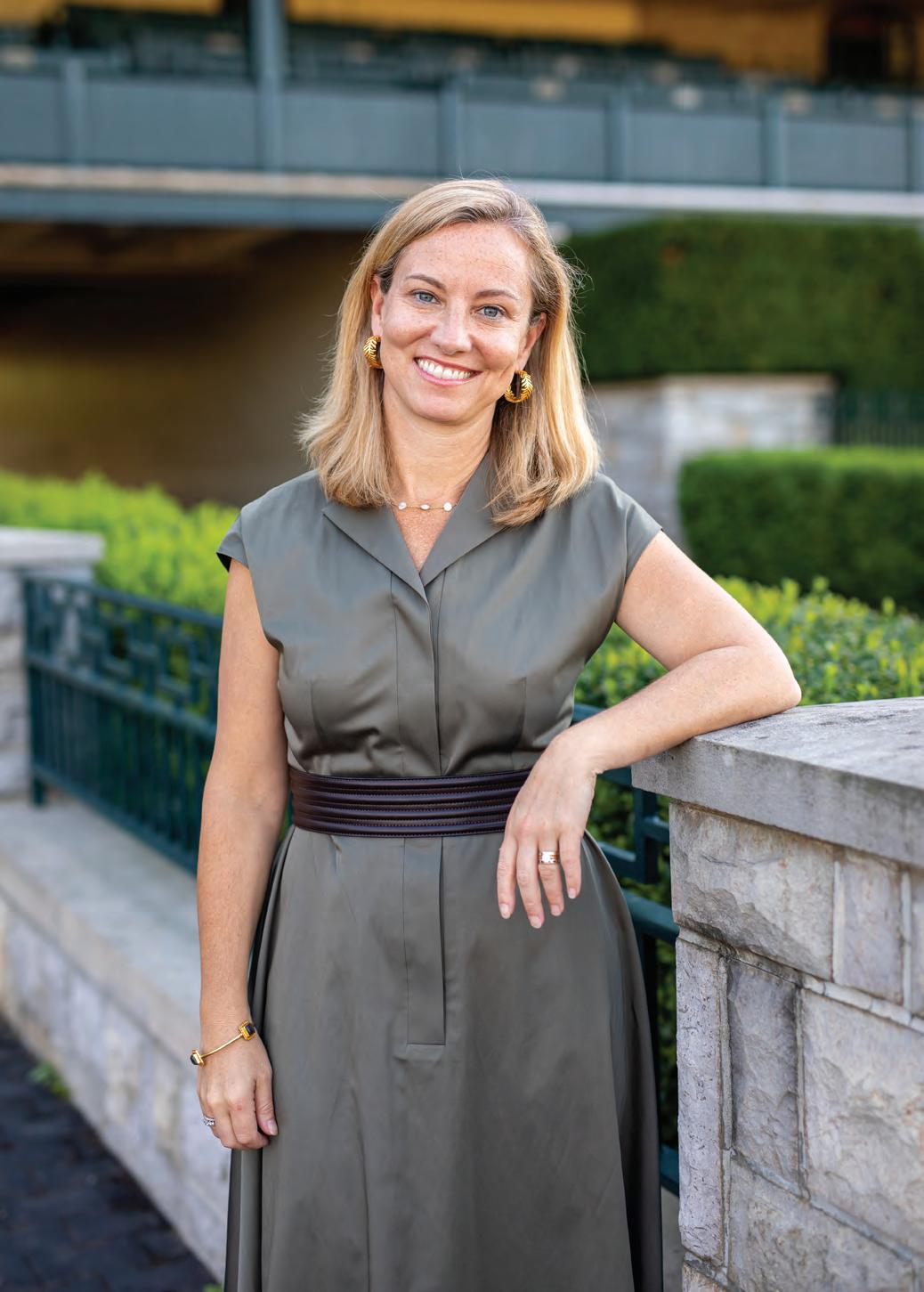
16 minute read
No Ordinary Season
Kentucky’s performing arts centers adapt to the challenges of today’s COVID-19 world

Mountain Arts Center
The Mountain Arts Center in Prestonsburg had a full slate of shows and concerts ready to go for the 2020- 2021 season. Then, COVID-19 hit.
“I think we say once a week: ‘Who would have thought we would be dealing with this?’ ” said Joe Campbell, the MAC’s executive director.
Campbell was forced to furlough many of the center’s full-time employees and all of its part-time workers last spring because of coronavirus. But, as things slowly began to reopen, Campbell said the center started bringing back some employees, scheduling some shows, and reopening its meeting rooms for public rental.
The MAC has been able to host a few concerts by local musicians. It has enacted strict social distancing guidelines, such as slashing the audience count and placing guests in every other row, although family groups can sit together.
The center has some events on the books for the coming months, but, as most people have experienced, nothing is set in stone.
“We just don’t know if that’ll happen,” Campbell said. “We’re in a holding pattern.”
By this time of year, rehearsals usually have wrapped up, schedules have been set, and tickets have been sold for the myriad performing arts venues across Kentucky. But not this season. COVID-19 has shuttered
stages and canceled concerts nationwide. Many smaller theaters lost most of their revenue, resulting in budgets that hang by a thread. Other venues have adapted and found new platforms on which to share the arts, reaching audiences far beyond the Commonwealth’s borders. We talked to a few from
across Kentucky to see how they are adapting to this difficult time.
In the meantime, Campbell said the MAC has purchased new equipment that will enable it to stream shows and performances online, so patrons won’t miss out on some needed entertainment. The center is relying on revenue from its rental spaces and its recording studio.
“We have a nice, full-fledged recording studio—anything like you would see in Nashville or New York City,” he said. “This gives an opportunity during all this to really push it hard and try to get some revenue from it. It’s available for bands, musicians and demos, and if you need to record a spot for a radio commercial, we can do it here.”
Campbell said that, once the MAC can fully re-open, it may have some national acts on the schedule. For now, it’s giving local artists the stage.
“At least for a little while and then build back up to some bigger events,” he said. “Our cash flow is pretty rough right now, so I think it’s going to take a while to dig out of that hole.”
LTo keep up with the latest schedule, visit the MAC’s website at macarts.com.
RiverPark Center
“Just because the world has changed, doesn’t mean our mission has. This pause in time is only an intermission.”
These are words of hope on RiverPark Center’s website touting its “Intermission” online series. The weekly presentation on the center’s YouTube channel enables local actors, dancers, musicians and poets the chance to showcase their work during a time when they normally would be on stage in front of a paying audience.
As a result of COVID-19, the Owensboro arts center has seen a 30 percent loss of annual revenue and a season schedule that can change at a moment’s notice.
RiverPark’s executive director, Rich Jorn, said this has been a crazy situation.
“Usually by August, your whole season is set up, you’ve done all your marketing campaigns, and you just wait for the money to start coming in on ticket sales and all that,” Jorn said. “Right now, you can’t get anybody to confirm … because they don’t know what they’re doing yet.”
Jorn said RiverPark does have a few acts lined up to take the stage, with strict health and safety guidelines in place, but at the mandated reduced seating capacity, Jorn said the center will lose thousands of dollars.
Jorn knows he’s not alone and that
the entire live entertainment industry is in the same boat.
“The entertainment industry was probably the first thing that got shut down. We’re going to be the last thing that comes back full-speed,” he said. “Our whole industry is based on two things—having a crowd and disposable income—and the pandemic is pulling both of those right off the bat.”
In the meantime, RiverPark is booking what it can for in-person performances while also utilizing streaming technology to keep arts alive.
“Art is happening. Music is happening. Theater is happening, and here’s an opportunity to catch it [online],” Jorn said.
LCheck out the latest schedule and possible changes at RiverPark’s website, riverparkcenter.org.
Kincaid Regional Theatre
In 1997, a major flood devastated most of the town of Falmouth. Subsequently, the Kincaid Regional Theatre’s 1997 fall season was canceled. But theater treasurer Shirley Merrill said 1997 has got nothing on 2020.
The theater was able to rebuild after the flood and continue to entertain the community.

“But this summer? Wow. What a big disappointment,” Merrill said. “We’ve been through some storms, but we couldn’t have predicted this. This has probably been the worst.”
Brett Price, the theater’s artistic director, said it had reached an agreement with nearby Stonewood Gardens in the past year to begin hosting the gardens’ productions, and the momentum for a great year was building.
“We were just about at the top of the hill … and then, bam, COVID happened, and it halted all that,” Price said.
The company was forced to cancel its 2020 summer season, and the results were crippling.
“We have no income,” Merrill said. “With not having any productions, you can’t have audience ticket sales. Without a production, you can’t sell ads. Without a production, you can’t ask for corporate sponsors to be in your playbill. It puts a limit on all the ways we were making revenue. At this point, none of that is available.”
The theater plans to present at least two productions this fall, including the hit show Annie in December. But Merrill admits even that is “up for grabs.”
Not everything is doom and gloom. Price said the idea of live streaming the theater’s shows is on his radar.
This season, Louisville's Actors Theatre is presenting “transmedia storytelling”— virtual shows, audio productions and more online.
“We haven’t had any official conversations about that yet, but I know personally, when it comes to scoping out the rest of the year, I think that’s something I think we could consider—especially with our Christmas show if we aren’t able to do Annie,” Price said.
LTo get the latest updates on what the Kincaid Regional Theatre is planning, visit krtshows.com.
Actors Theatre
When COVID-19 and its aftermath hit, Actors Theatre in Louisville immediately began looking at how to make the best of a bad situation and continue to share the arts with the public.
“What we’re just trying to figure out is how we can share good news in a moment where there’s a lot of bad news; a lot of demoralizing news; a lot of stressful, frightening news; a lot of cynical news,” said Robert Fleming, the theater’s executive artistic director. “We have invested in the digital platform, working in a virtual context. That’s just more than putting on plays without an audience on a digital capture. It’s actually transformed into something that allows us to broaden our connection with our stakeholders through different kinds of ways that we share stories.”
The entire 2020-2021 season will be what Fleming calls “transmedia storytelling”—virtual shows, audio productions and more that will be available online.
“People can access [our productions] from anywhere in the world,” said Patrick Owen, Actors Theatre’s chief external relations officer. “As word continues to get out about what we are doing and people continue to engage with it and they start sharing it, we believe our national audience is going to grow tremendously over time.”
Fleming points to the June Facebook Live presentation of Hannah L. Drake’s Fix it, Black Girl, which drew more than 400 live viewers—the equivalent of selling out the Bingham Theatre at Actors Theatre’s brick-and-mortar location on Main Street.
For the upcoming season, Actors Theatre will present eight productions ranging from one-act plays to radio dramas, all available online. Ticket prices to each event vary, but subscription packages are available.
LMore information on the show lineup and prices can be found at actorstheatre.org.
Singletary Center for the Arts
In ordinary times, the Singletary Center for the Arts at the University of Kentucky brings dozens of local and national acts to its Lexington stage. But the pandemic has forced it to close its doors to the public and shift its focus.
“So for the fall of 2020, it looks like we’re really going to be focusing our efforts on the academic mission for the College of Fine Arts,” said Matthew Gibson, the center’s marketing and ticketing director. “We’ll be acting primarily as a classroom space to be able to provide socially distanced spaces for music ensembles and other academic classes in the college.”
But Gibson said that doesn’t mean the public won’t be able to enjoy performances from the students. Like many professional theaters and venues across the Commonwealth, performances will be shared online.
“While it was difficult to initially accept the fact that we’re not going to be able to invite audiences in and not have the interpersonal aspect of the concert/performance experience, we’re looking at this as an opportunity to document these School of Music ensembles in a way that we haven’t been able to as much before,” he said.
“Normally, when you go to a concert, you have one seat, and that’s your fixed perspective for the entire experience. So we’re excited to be able to do some multi-camera shoots and show things to people in a different way.”
LFor updates on the Singletary Center’s online performances, check out finearts.uky.edu/singletary-center.
Together.
We Fight Heart Disease.

Heart & Vascular Institute
Call for a consultation today. (606) 218-2202 | pikevillehospital.org
Dermot Halpin, MD, FACS
Cardiothoracic Surgeon
Board Certified: American Board of Surgery, American Board of Thoracic Surgery
Turning Over the Reins
Shannon Bishop Arvin will call upon her determination, expertise and love of the horse to lead Keeneland through uncertain times
BY A B BY L AU B
or horses, determination is an innate
Fcharacteristic.
“It’s pretty magical when you watch a newborn foal stand for the first time 10 to 15 minutes after being born,” Shannon Bishop Arvin said. “If that doesn’t teach you about determination, then I don’t know what does.”
Arvin knows a thing or two about both determination and horses. In July, she was unanimously appointed by the Keeneland Trustees in Lexington as the successor of Keeneland President and CEO Bill Thomason, who announced his retirement after a decade with the Keeneland Association that included eight years at the helm of the global racing and sales company.
Arvin, as a partner with law firm Stoll Keenon Ogden, has served as corporate counsel to Keeneland since 2008 and as secretary and advisory member of Keeneland’s board of directors since 2015. She will serve as the incoming president-elect beginning Sept. 1 and will officially transition to president and CEO on Jan. 1, 2021. Arvin becomes Keeneland’s eighth president and the first woman to serve in that position. She has said she is “humbled and grateful for the opportunity.”
Arvin’s association with Thoroughbred racing and with Keeneland began much earlier than 2008. The Lexington native called horses “majestic.”
“There isn’t an animal alive that’s as beautiful as a horse,” she said. “I took living around horses for granted as a child. Every Sunday, we had lunch at my greatgrandfather’s farm on Military Pike. It was not a horse farm, but it was right across from a horse farm. I was just used to that beautiful green space.”
Through SKO’s Lexington office, where she has practiced since 2002 and gained respect for her work in the equine industry, Arvin has represented Thoroughbred owners and prominent industry organizations in Kentucky and around the world. She also serves on the University of Kentucky’s Gluck Equine Research Foundation Board of Directors and is a member of The Jockey Club.
Arvin is secretary of Lexington-based tour company Horse Country, director of Kentucky Bank, director of The Lexington School, and chair and director of Bluegrass Care Navigators (formerly Hospice of the Bluegrass). She also is past president of the Thoroughbred Club of America.
She studied political science and international studies at the University of North Carolina, Chapel Hill, graduating with a bachelor’s degree. She graduated from the University of Kentucky College of Law in 2002.
Arvin and her husband, Will, have two daughters, Bishop and McCutchen. She enjoys teaching the girls about horses and shared a unique experience with them last spring when they witnessed a foal being born.
“I do live on a farm now, which I love,” she noted. “And I love that opportunity for my children to be able to see the horses. My favorite time of the year is foaling season, but that’s because I’m not a night watchman. There’s nothing like watching a foal being born. This past year was one of the times that it was the most marked for me, maybe because my kids are at the age where they really got it.”
Arvin was schooled in the Thoroughbred industry by her family. Her grandfather, W.T. “Bish” Bishop, was the first general manager of Keeneland when the track opened in 1936. Her father, the late William T. “Buddy” Bishop III, grew up at Keeneland, living in an apartment next to the clubhouse. Buddy Bishop’s lifelong service to Keeneland included positions as director, secretary, trustee and counsel.
Arvin’s experiences at Keeneland also began as a kid,
P H O T O BY KATIE KE L L E Y

when she worked in the sales office in high school.
“I helped file catalogs and cards and worked the switchboard during the summer and during sales,” she said. “In the kitchen, I always remember while working here, there were graham crackers and peanut butter as a snack. They still have that in the kitchen.”
She noted that Keeneland didn’t always boast an atmosphere that was as family friendly as it is today, explaining that the addition of Sunday racing brought out more families and that, when she was growing up, “Saturday racing was kind of an adult day.”
When a full-time career called, she didn’t stray far from those roots, even in the legal profession.
“[Working in the equine industry] definitely starts and ends with horses,” she said. “But it’s also the relationships. This is such a relationship business, and this sport draws interesting people. One day you can be on the phone with Ireland, Dubai, Saudi Arabia, Australia. It’s such an international business. And my friends have been my clients, and my clients have been my friends. Those relationships definitely led me to Keeneland and this role.”
Leadership at Keeneland was already well aware of her work when Thomason’s retirement was announced.
“I feel privileged to work alongside people who share a commitment to always put the best interest of the horse first and to exceed our customers’ expectations,” Thomason said in a prepared statement. “Keeneland was founded upon these principles, which continue to guide our operations to this day. Shannon’s life and work experiences intertwine with that philosophy, and I look forward to her leadership of Keeneland for years to come.”
The years to come will start with the challenging one that is 2020. Arvin assumes responsibility at a time when Keeneland is experiencing a massive drop in the number of fans out of necessity due to COVID-19. Determination will again be the name of the game.
Thomason navigated Keeneland through a decade of substantial growth and change in the Thoroughbred industry. Keeneland achieved strong spring and fall meet attendance and handle, highlighted by the more than $25 million wagered on last year’s Toyota Blue Grass Day and the more than $160 million wagered during the 2019 fall meet. The Shadwell Turf Mile and Toyota Blue Grass Stakes’ purses were elevated to $1 million.
On the sales front, Keeneland further expanded its global outreach, resulting in gross sales of more than $627 million last year; launched the Keeneland Digital Sales Ring, the first online Thoroughbred auction in North America; and undertook a multimillion-dollar renovation of the barn area to better showcase offerings for Keeneland auctions.
Keeneland successfully hosted the 2015 Breeders’ Cup, which generated a nearly $70 million economic impact for Lexington, and Thomason negotiated the event’s return to Keeneland in 2020.
Arvin said that she and Thomason aim to steer Keeneland back to that level of achievement “delicately” once the pandemic allows.
“I’m working this fall with Bill still at the helm through what we know is going to be a really challenging fall, unlike any other we’ve ever seen,” she said. “Paramount to Keeneland, along with its openness, is responsibility. We work responsibly with guests, consignors, employees, people on tour, buyers, race fans and athletes, and we will continue to work closely with public health officials.”
Arvin said they will continually work through enhanced ways for guests to enjoy Keeneland at home. She is hopeful the track can host a fall meet in an altered manner.
“The moment that has felt the most surreal to me, maybe since the pandemic began, was during our July meet,” Arvin said. “The biggest crowd we had on any given day was 600 people. We can’t wait for the crowds to be back … And it’s just so important to our industry to have racing.”
In addition to the crowds during a race meet, visitors can enjoy Keeneland throughout the year for its beauty, welcoming atmosphere and popular events.
“It’s such a unique place,” Arvin said. “Everyone in our industry feels some sort of ownership and pride in Keeneland, which we love. We have been very open. We’ve got 1,000 acres, and we welcome people on our grounds. When we’re not in a pandemic, we have lots of dog walkers and other guests enjoying the property. I think those things endear Keeneland to the community. And it acts with integrity as an organization and does the right thing.”
Keeneland has important ties to central Kentucky’s heritage, economy and culture. Over its 80-plus-year history, it has benefited the local community and the horse industry while staying laser focused on advancing the safety and integrity of the sport for both human and equine athletes.
In light of COVID-19, that continues with business as usual behind the scenes as trainers and grooms care for the horses with a lot more temperature checks and safety precautions.
“I have so much respect for Bill and have very big shoes to fill,” Arvin said. “I’ve worked with Bill for as long as I was a lawyer. He has such a passion for Keeneland. You’d be hard pressed to find a kinder and harder-working man with such integrity. That integrity is such a huge part of the fabric of Keeneland and his legacy there. He does the right thing for the right reasons even when that’s not easy. I will work to continue to lead Keeneland with that level of integrity.”
Though she leaves behind a beloved and storied legal career, Arvin is looking forward to a new rhythm in her professional life.
“I practiced law for 18 years, and I’ve managed my time in six-minute increments for a long time, so I’m looking forward to not doing that anymore,” she said. “It is such a unique opportunity to lead an organization like this. There is not a place in the world like Keeneland.” Q





